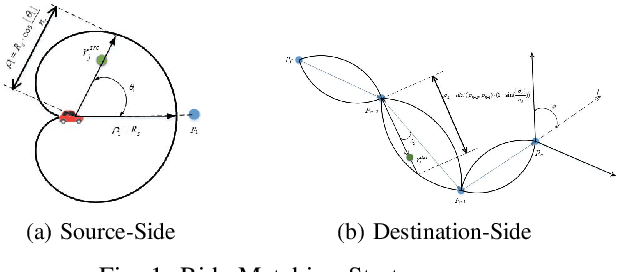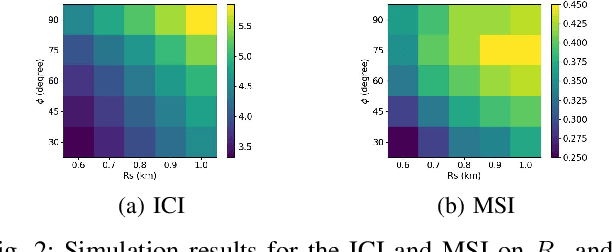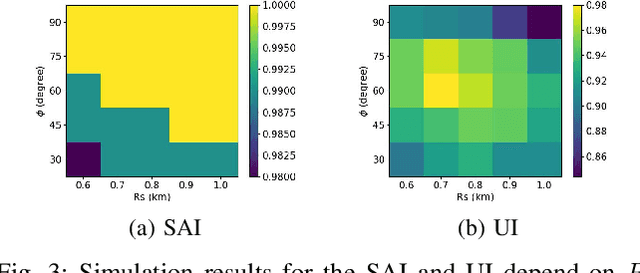A Ride-Matching Strategy For Large Scale Dynamic Ridesharing Services Based on Polar Coordinates
Paper and Code
Jun 08, 2019



In this paper, we study a challenging problem of how to pool multiple ride-share trip requests in real time under an uncertain environment. The goals are better performance metrics of efficiency and acceptable satisfaction of riders. To solve the problem effectively, an objective function that compromises the benefits and losses of dynamic ridesharing service is proposed. The Polar Coordinates based Ride-Matching strategy (PCRM) that can adapt to the satisfaction of riders on board is also addressed. In the experiment, large scale data sets from New York City (NYC) are applied. We do a case study to identify the best set of parameters of the dynamic ridesharing service with a training set of 135,252 trip requests. In addition, we also use a testing set containing 427,799 trip requests and two state-of-the-art approaches as baselines to estimate the effectiveness of our method. The experimental results show that on average 38% of traveling distance can be saved, nearly 100% of passengers can be served and each rider only spends an additional 3.8 minutes in ridesharing trips compared to single rider service.
 Add to Chrome
Add to Chrome Add to Firefox
Add to Firefox Add to Edge
Add to Edge